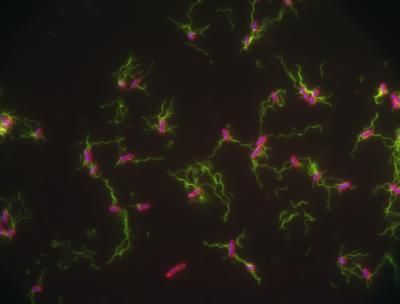Perlegen Seeking Genes Responsible for Actos and Avandia Side-Effects
Perlegen Sciences announced that it has completed the collection of more than 3,000 DNA samples from diabetic patients treated with Actos(R) and Avandia(R) in order to analyze the genetic variability associated with adverse events due to treatment with this class of medications.
An estimated 200 million people worldwide have type 2 diabetes, including close to 20 million in the United States. In the late 1990s, insulin sensitizing thiazolidinediones (TZDs, the class of drugs to which Actos(R) and Avandia(R) belong) were approved in the United States for the treatment of type 2 diabetes. The main side effect from TZDs is fluid retention, leading to edema, weight gain, and potentially aggravating heart failure. The US Food and Drug Administration requested "black box" labels be added to the packaging of both drugs, warning about the risk of cardiovascular events. This new labeling may significantly impact the use of these agents.
Perlegen has collected DNA from more than 3,000 subjects in more than 160 centers worldwide who have been treated with Actos(R) or Avandia(R). Perlegen will use these samples to identify genetic variations that may contribute to a patient's risk of experiencing adverse events. Results of these analyses may help to direct patients to the drug that is most appropriate for their use, and may provide researchers with important new targets or pathways for drug discovery and development. The company has licensed its own phase III ready TZD from Mitsubishi Pharma.
Most read news
Other news from the department research and development

Get the life science industry in your inbox
By submitting this form you agree that LUMITOS AG will send you the newsletter(s) selected above by email. Your data will not be passed on to third parties. Your data will be stored and processed in accordance with our data protection regulations. LUMITOS may contact you by email for the purpose of advertising or market and opinion surveys. You can revoke your consent at any time without giving reasons to LUMITOS AG, Ernst-Augustin-Str. 2, 12489 Berlin, Germany or by e-mail at revoke@lumitos.com with effect for the future. In addition, each email contains a link to unsubscribe from the corresponding newsletter.























































